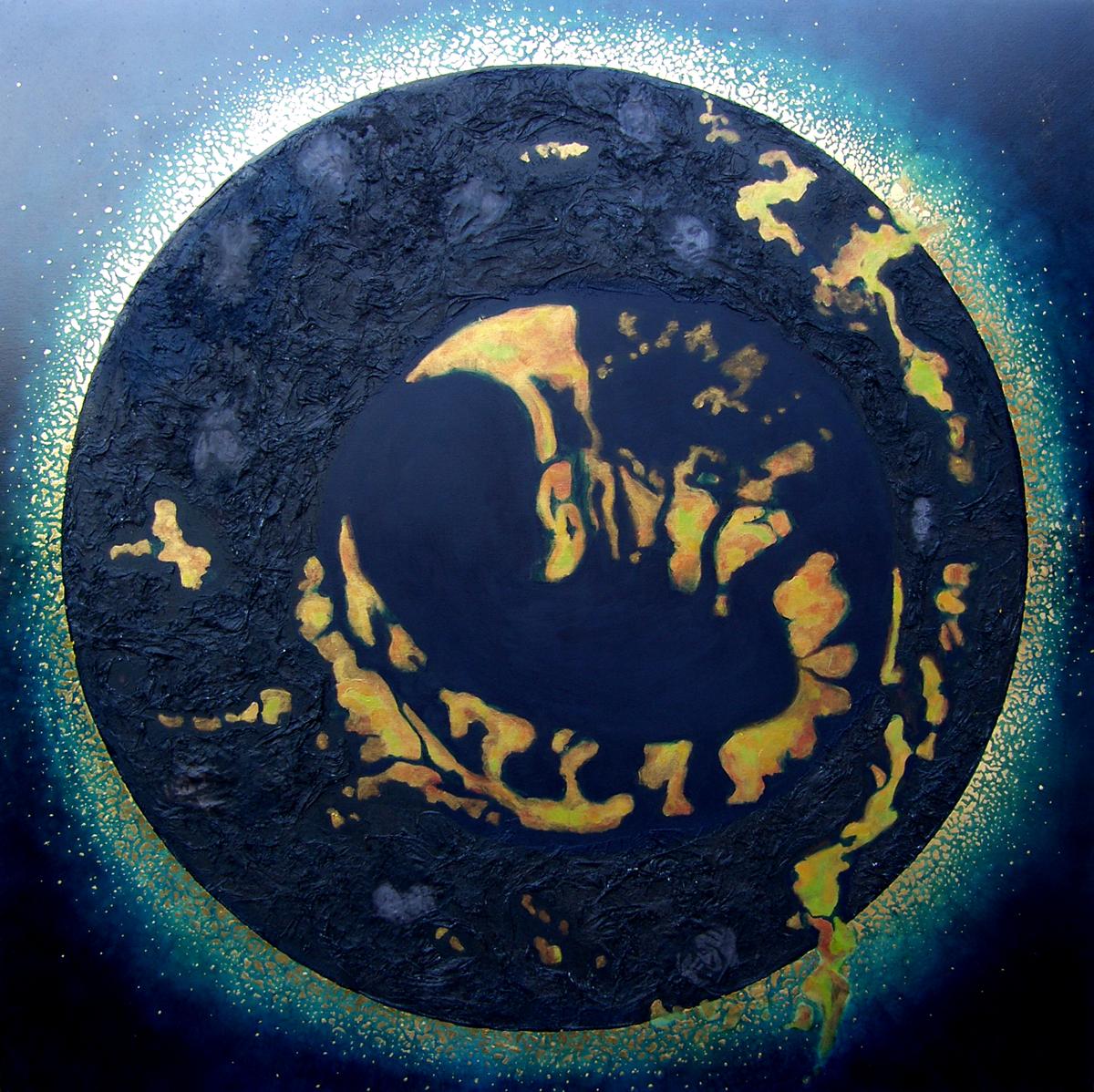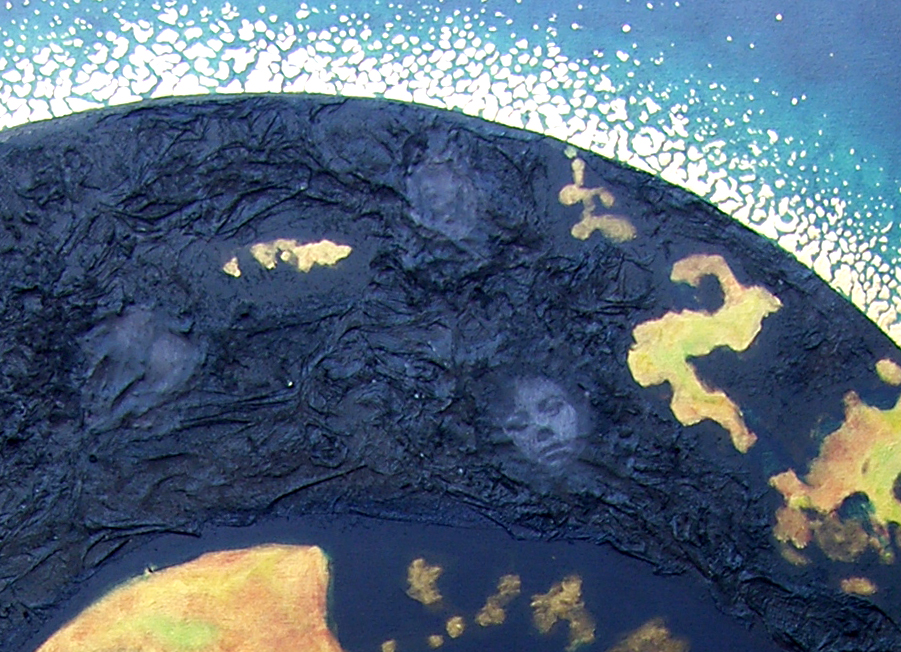December 26: The Supremacy of God's Son
♫ Music:
Day 24 - Tuesday, December 26
Title: The Supremacy of God's Son
Scripture: Hebrews 1:1-4
Long ago, at many times and in many ways, God spoke to our fathers by the prophets, but in these last days he has spoken to us by his Son, whom he appointed the heir of all things, through whom also he created the world. He is the radiance of the glory of God and the exact imprint of his nature, and he upholds the universe by the word of his power. After making purification for sins, he sat down at the right hand of the Majesty on high, having become as much superior to angels as the name he has inherited is more excellent than theirs.
Poetry:
Descending Theology: Christ Human
By Mary Karr
Such a short voyage for a god,
And you arrived in animal form so as not
to scorch us with your glory.
Your mask was an infant’s head on a limp stalk,
sticky eyes, smeared blind,
limbs rendered useless in swaddle.
You came among beasts
as one, came into our care or its lack, came crying
as we all do, because the human frame
is a crucifix, each skeletos borne a lifetime.
Any wanting soul lain
prostrate on a floor to receive the poured sunlight
might - if still enough,
feel your cross buried in the flesh.
One has only to surrender,
you preached, open both arms to the inner,
the ever-present embrace,
which props one up, out-reaches every grasp.
It’s in the form imbedded,
love adamant as bone. The miracle’s not just
that you became us, but also
those breathed-in instants allotted to us each
(even poor Brother Judas),
when one relinquishes self and will and want.
Then you’re laid bare in us,
and for some briefly gentle eyeblink
we bloom and are you.
THE SUPREMACY OF GOD’S SON
Human birth is messy no matter how sterile the environment, and painful no matter how effective the pain killer. There is something so elemental when a child exits her mother’s womb and enters this world of brokenness and sin. And the child, as if the newborn babe understands this instinctively, cries when she realizes that she is no longer in the protection of the womb. The child’s cry mimics the fallen world’s ongoing lament amidst hope and eager anticipation. There is pain in childbirth, for everyone involved, but there is also joy.
Mary Karr knows this and reminds us that this is true when she describes the infant Jesus’ form as “animal” as he enters the world of “beasts.” In her estimation this is to protect the rest of humankind, so that Jesus’ divinity does not “scorch us with [his] glory.” And glorious He is for He is of the Father’s love begotten and “is the radiance of the glory of God and the exact imprint of his nature.” Yet this “animal” came for a specific purpose that could not be thwarted. Veiled in flesh, Jesus is “of the earth,” but as God, He is “the Savior of our race.” He who created the world and upholds it by His power, came to redeem this same world from its sinfulness and brokenness. He who is God took on human form, condescended to wear human skin over a cross-shaped skeletal form in order to bring salvation to the whole world on the cold wood of the cross. He who made the world, became subject to the world, made from the stuff of the world in order to redeem the world.
As we ponder this mystery, we must not lose sight of the fact that Jesus’ birth undoes all of the undoing that fallen humankind inflicts on the creation. Jesus’ birth undoes the results of the Fall both for humankind and for all of creation. In love, God the Father sends His Son who becomes human by the power of the Holy Spirit, with the cooperation of the Virgin Mary, in order to redeem the world. Jesus is the world’s Redeemer and is therefore worthy of all worship.
Thus,
Let the heights of heaven adore him;
angel hosts, his praises sing;
powers, dominions, bow before him,
and extol our God and King;
let no tongue on earth be silent,
every voice in concert ring,
evermore and evermore!
Prayer:
O God, who wonderfully created, and yet more wonderfully restored, the dignity of human nature: Grant that we may share the divine life of him who humbled himself to share our humanity, Your Son Jesus Christ; who lives and reigns with You, in the unity of the Holy Spirit, one God, for ever and ever.
Amen.
(Book of Common Prayer, 1979)
Rev. Greg Peters, PhD
Associate Professor Medieval and Spiritual Theology,
Torrey Honors Institute, Biola University
About the Artwork:
Advent (with detail), 2006
Gerda Smelik-Middel
Mixed media on canvas
160 x 160 cm
This work entitled Advent by Dutch artist Gerda Smelik-Middel deals with the coming of Christ into our world. Of her work, the artist says: “Advent, a period of reflection and expectance, is portrayed by a globe with a fetus inside. The dark colours stand for the brokenness of life; the light around the fetus and the rays of gold around the globe already announce a better world. When you look at the painting up close, you discover that the suffering of the world is depicted by means of portraits of people in danger and distress.”
About the Artist:
Gerda Smelik-Middel (b. 1964) was a primary school teacher until 2003. She studied art in the Netherlands and has lectured extensively on art and design. Currently, she works as an independent artist.
About the Music:
“Of the Father's Love Begotten” from the album Come Down O Love Divine
About the Composer:
“Of the Father's Heart Begotten” is a Christmas carol based on the Latin poem “Corde Natus” by the Roman poet Aurelius Prudentius (348 - 415). The ancient poem was translated and paired with a medieval plainchant melody, Divinum Mysterium. Plainsong developed during the earliest centuries of Christianity and was influenced by the music of the Jewish synagogue and the Greek modal system. It has its own system of notation, employing a staff of four lines instead of five. Plainsong is monophonic, consisting of a single, unaccompanied melodic line, and its rhythm is generally freer than the metered rhythm of later Western music.
About the Performer:
Fernando Ortega is an evangelical Christian singer-songwriter and worship leader heavily influenced by traditional hymns, as well as his family’s Albuquerque, New Mexico heritage. Much of his current inspiration comes from the North American Anglican liturgy. From the late 1970′s to the mid 1990’s, he served in music ministry at a number of churches in New Mexico and Southern California. From 1993 to the present, Ortega has worked as a concert and recording artist and has released 14 albums.
About the Poet:
Mary Karr (b. 1955) is an American poet, essayist, and memoirist from Texas. She rose to fame in 1995 with the publication of her bestselling memoir The Liars' Club. She is the Jesse Truesdell Peck Professor of English Literature at Syracuse University in New York. Her memoir The Liars' Club which delves vividly into her deeply troubled childhood was followed by two additional memoirs, Cherry and Lit: A Memoir, which details her "..journey from blackbelt sinner and lifelong agnostic to unlikely Catholic." Karr won the 1989 Whiting Award for her poetry, was a Guggenheim Fellow in poetry in 2005, and has won Pushcart Prizes for both her poetry and essays. Her poems have appeared in major literary magazines such as Poetry, The New Yorker, and The Atlantic Monthly.
About the Devotional Writer:
Greg Peters is a native Virginian who loves to travel (especially in Europe) and read. When not reading for work, Greg reads for fun. He enjoys the fiction of Paul Auster, Bernard Malamud, Chinua Achebe and the nineteenth century Russian novelists. In addition, Greg loves the poetry of John Donne and George Herbert. When it comes to non-fiction, he enjoys reading anything that has to do with theology, monasticism or the history of the Christian church. When not working or reading Greg enjoys spending time with his wife Christina and their two sons: Brendan and Nathanael. In addition to being a professor at Torrey Honors Institute, Greg is an ordained pastor in the Anglican tradition, serving regularly in his local parish.

